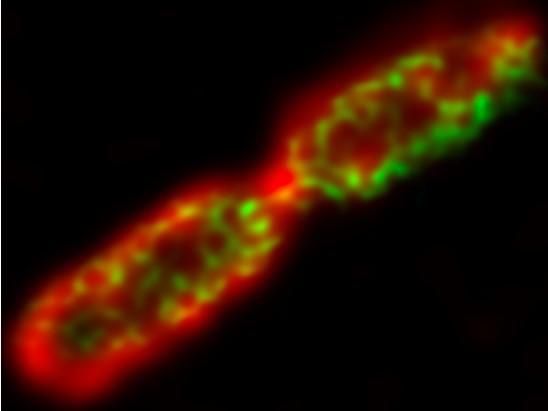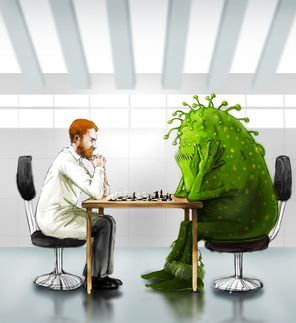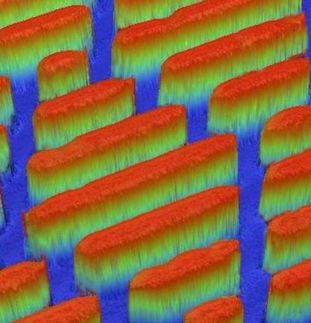New compound which kills antibiotic-resistant superbugs discovered
A new compound developed by University of Sheffield experts has killed antibiotic resistant gram-negative bacteria, including E. coli, during tests
A new compound which visualises and kills antibiotic resistant superbugs has been discovered by scientists at the University of Sheffield and Rutherford Appleton Laboratory (RAL).

Gram negative bacteria.
University of Sheffield
The team, led by Professor Jim Thomas, from the University of Sheffield's Department of Chemistry, is testing new compounds developed by his PhD student Kirsty Smitten on antibiotic resistant gram-negative bacteria, including pathogenic E. coli.
Gram-negative bacteria strains can cause infections including pneumonia, urinary tract infections and bloodstream infections. They are difficult to treat as the cell wall of the bacteria prevents drugs from getting into the microbe.
Doctors have not had a new treatment for gram-negative bacteria in the last 50 years, and no potential drugs have entered clinical trials since 2010.
The new drug compound has a range of exciting opportunities. As Professor Jim Thomas explains: "As the compound is luminescent it glows when exposed to light. This means the uptake and effect on bacteria can be followed by the advanced microscope techniques available at RAL.
"This breakthrough could lead to vital new treatments to life-threatening superbugs and the growing risk posed by antimicrobial resistance."
The studies at Sheffield and RAL have shown the compound seems to have several modes of action, making it more difficult for resistance to emerge in the bacteria. The next step of the research will be to test it against other multi-resistant bacteria.
In a recent report on antimicrobial resistant pathogens, the World Health Organisation put several gram-negative bacteria at the top of its list, stating that new treatments for these bacteria were 'Priority 1 Critical' because they cause infections with high death rates, are rapidly becoming resistant to all present treatments and are often picked up in hospitals.
The research, published in the journal ACS Nano, describes the new compound which kills gram-negative E. coli, including a multidrug resistant pathogen said to be responsible for millions of antibiotic resistant infections worldwide annually.
Original publication
Kirsty L. Smitten, Hannah M. Southam, Jorge Bernardino de la Serna, Martin R. Gill, Paul J. Jarman, Carl G. W. Smythe, Robert K. Poole, and Jim A. Thomas: Using Nanoscopy To Probe the Biological Activity of Antimicrobial Leads That Display Potent Activity against Pathogenic, Multidrug Resistant, Gram-Negative Bacteria, ACS Nano 2019 13 (5), 5133-5146
Original publication
Kirsty L. Smitten, Hannah M. Southam, Jorge Bernardino de la Serna, Martin R. Gill, Paul J. Jarman, Carl G. W. Smythe, Robert K. Poole, and Jim A. Thomas: Using Nanoscopy To Probe the Biological Activity of Antimicrobial Leads That Display Potent Activity against Pathogenic, Multidrug Resistant, Gram-Negative Bacteria, ACS Nano 2019 13 (5), 5133-5146
Organizations
Other news from the department science

Get the life science industry in your inbox
By submitting this form you agree that LUMITOS AG will send you the newsletter(s) selected above by email. Your data will not be passed on to third parties. Your data will be stored and processed in accordance with our data protection regulations. LUMITOS may contact you by email for the purpose of advertising or market and opinion surveys. You can revoke your consent at any time without giving reasons to LUMITOS AG, Ernst-Augustin-Str. 2, 12489 Berlin, Germany or by e-mail at revoke@lumitos.com with effect for the future. In addition, each email contains a link to unsubscribe from the corresponding newsletter.






















































